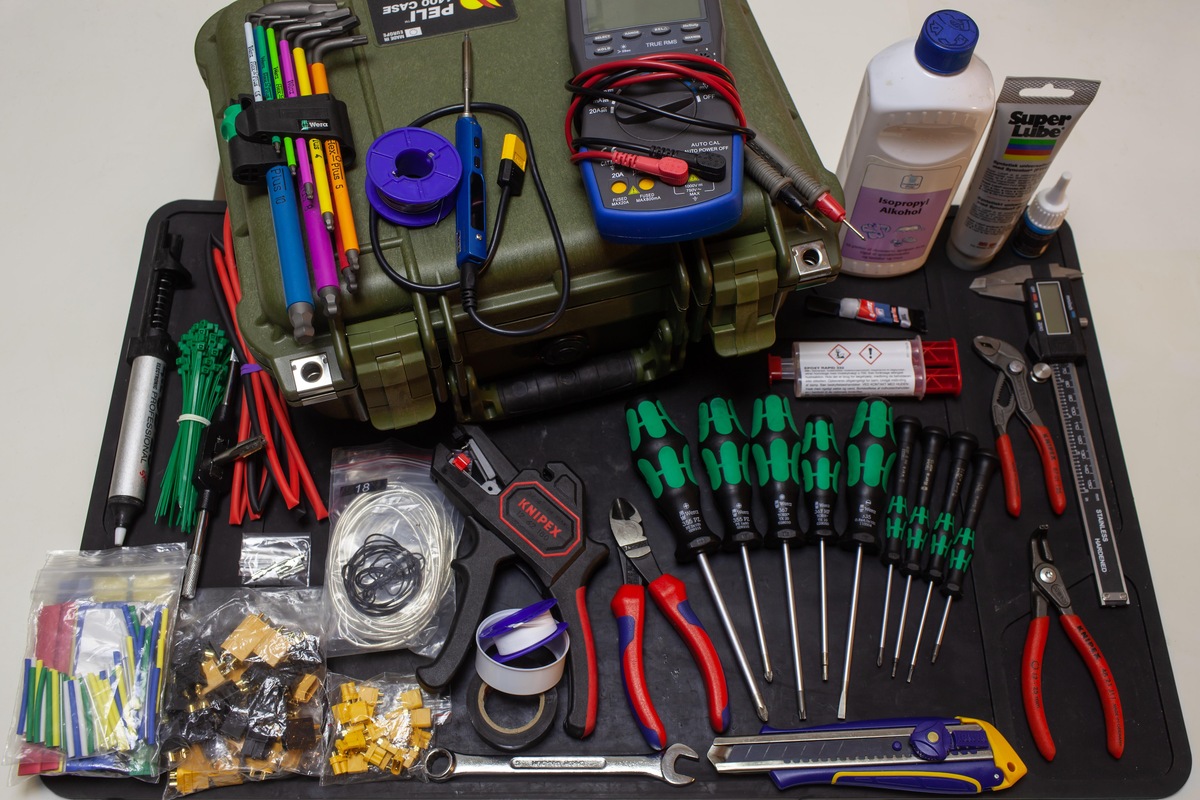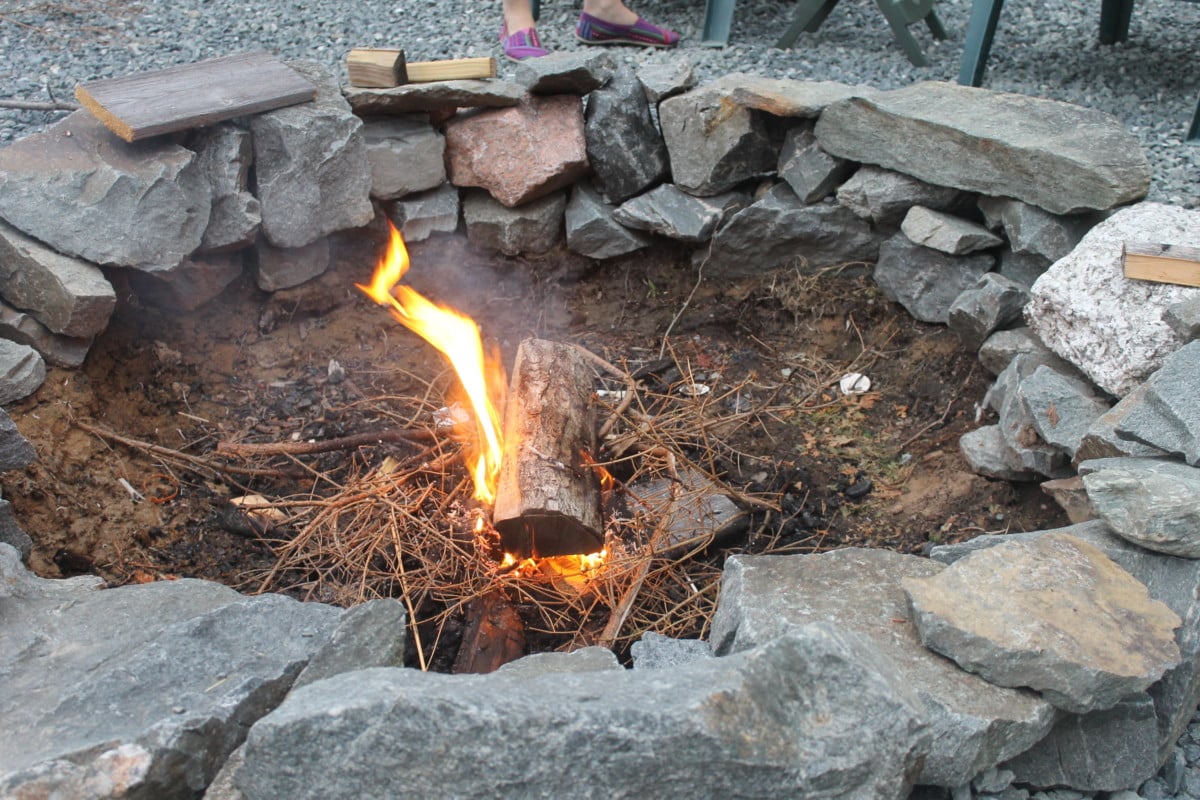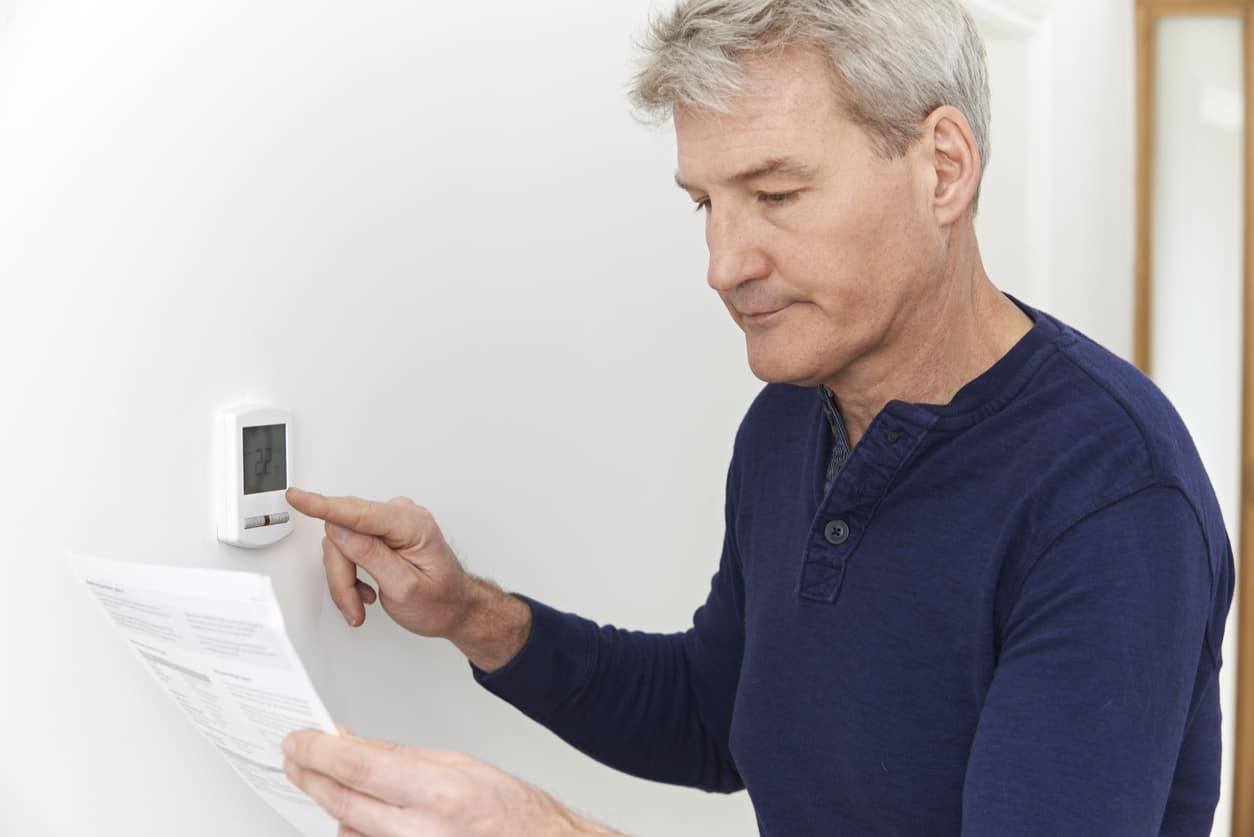Home>Articles>Preparing For A Power Outage: What You Need To Do To Be Ready


Articles
Preparing For A Power Outage: What You Need To Do To Be Ready
Modified: October 20, 2024
Discover helpful articles on how to prepare for a power outage and ensure you're ready for any emergency situation. Learn what you need to do to stay safe and well-prepared.
(Many of the links in this article redirect to a specific reviewed product. Your purchase of these products through affiliate links helps to generate commission for Storables.com, at no extra cost. Learn more)
Introduction
Power outages can happen unexpectedly, leaving us without electricity for hours or even days. Whether caused by severe weather conditions, equipment malfunctions, or scheduled maintenance, power outages can disrupt our daily routines and pose risks to our safety and well-being. That’s why it’s crucial to be prepared for such situations.
In this article, we will guide you through the necessary steps to take in order to be ready for a power outage. From creating an emergency plan to assembling an emergency kit and considering alternative power sources, we will cover everything you need to know to navigate a power outage with confidence.
By being proactive and implementing these preparations, you can minimize the inconvenience and potential dangers that come with a power outage. Let’s get started!
Key Takeaways:
- Be prepared for power outages by creating an emergency plan, assembling an emergency kit, and considering alternative power sources. Prioritize safety, communication, and home protection to navigate outages with confidence.
- Ensure your readiness for power outages by understanding their causes, preparing an emergency plan, and assembling an emergency kit. Stay informed, protect your home, and consider alternate power sources for sustained comfort and safety.
Read more: What Do You Need For A Picnic
Understanding Power Outages
Before we delve into the preparatory steps, it’s important to understand the nature of power outages. Power outages occur when the regular supply of electricity to homes and businesses is interrupted. These interruptions can be caused by a variety of factors:
- Weather-related incidents: Severe weather conditions like storms, hurricanes, or snowstorms can damage power lines and disrupt the power supply.
- Equipment malfunctions: Technical issues within the power distribution system or equipment failures can lead to power outages.
- Scheduled maintenance: Power companies occasionally need to conduct maintenance work on power lines or substations, requiring them to cut off the power temporarily.
- Accidents and emergencies: Unforeseen events such as car accidents or fires can damage power infrastructure and result in power outages.
During a power outage, the electrical grid’s ability to provide power to your home or business is interrupted, leaving you without electricity for a certain period of time. The duration can vary depending on the cause of the outage and how quickly the power company can restore service.
It’s important to note that power outages can have significant impacts beyond the inconvenience of losing lights and appliances. They can disrupt communication systems, transportation networks, and even critical services like hospitals and emergency response units. That’s why it’s crucial to be prepared for such situations and have a plan in place.
Now that we have a better understanding of what power outages are and why they occur, let’s move on to the steps you can take to prepare for them.
Steps to Prepare for a Power Outage
Being prepared for a power outage can make all the difference in ensuring your safety and comfort during these unplanned events. Here are some essential steps to help you prepare:
- Educate yourself: Learn about the common causes of power outages in your area and familiarize yourself with the emergency response procedures of your local power company.
- Create an emergency plan: Develop a plan with your family members or housemates outlining what to do in the event of a power outage. Include evacuation routes, meeting points, and contacts for emergency services.
- Assemble an emergency kit: Prepare an emergency kit that includes essential items such as flashlights, batteries, a battery-powered radio, a first aid kit, non-perishable food, and water.
- Stock up on supplies: Keep a supply of necessary items like canned food, medications, and fuel for generators if you have them. Ensure you have enough supplies to last for at least three days.
- Secure your home: Inspect and secure your home to minimize potential damage during a power outage. Trim tree limbs near power lines, secure loose objects that could become projectiles in high winds, and install surge protectors to safeguard your electronics.
- Backup power source: Consider investing in an alternative power source such as a generator or solar panels. These can provide electricity during an outage and ensure the operation of essential appliances and medical equipment.
- Stay informed: Keep track of weather forecasts and stay updated on any potential power outages in your area. Use a battery-powered or hand-cranked radio to receive emergency alerts and important information.
- Practice safety precautions: Familiarize yourself with safety measures such as using candles and portable heaters safely, avoiding carbon monoxide poisoning, and keeping refrigerated food safe during an outage.
- Maintain communication: Have a backup plan for communication during a power outage. Keep a charged power bank for your cell phone and consider getting a landline phone that does not require electricity.
By following these steps, you will be well-prepared when a power outage occurs. Remember, the key is to plan ahead and ensure you have the necessary resources to stay safe and comfortable during these situations.
Creating an Emergency Plan
An emergency plan is a crucial component of your overall preparedness for a power outage. It outlines the necessary steps you and your family should take to ensure your safety and well-being during such events. Here are some key aspects to consider when creating your emergency plan:
- Designate emergency meeting points: Choose a safe location within your home where family members can gather during a power outage. Additionally, identify an external meeting point in case you need to evacuate your home.
- Establish communication protocols: Determine how you will stay in touch with your family members during an outage. This can include using cell phones, two-way radios, or a designated family contact outside the affected area.
- Identify evacuation routes: Familiarize yourself with the evacuation routes in your area. Mark them on a map and ensure all family members are aware of them.
- Include special considerations: Take into account any specific needs or requirements of family members, such as infants, elderly individuals, or individuals with disabilities. Ensure you have the necessary supplies and accommodations to address these needs.
- Prepare important documents: Gather and secure important documents such as identification papers, insurance policies, and medical records in a waterproof and easily accessible container.
- Keep emergency contacts handy: Create a list of emergency contacts, including local authorities, utility companies, and family members or friends who can offer assistance.
- Review and practice: Regularly review your emergency plan with your family members and practice the evacuation procedures. This will help ensure everyone knows their roles and responsibilities in the event of an emergency.
Remember to tailor your emergency plan to the specific needs and circumstances of your household. Update it periodically as family dynamics change or when new information becomes available.
By creating a comprehensive emergency plan, you can effectively respond to power outages and ensure the safety and well-being of your loved ones.
Assembling an Emergency Kit
An emergency kit is a collection of essential items that you may need during a power outage. It is important to assemble this kit well in advance, so you have everything you need readily available. Here are some items to include in your emergency kit:
- Flashlights and batteries: Opt for battery-powered flashlights to provide light during an outage. Make sure you have spare batteries on hand as well.
- Battery-powered radio: A battery-powered or hand-cranked radio can keep you informed of news and emergency updates during a power outage.
- First aid kit: Include a well-stocked first aid kit with supplies such as bandages, antiseptic solution, pain relievers, and any necessary prescription medications.
- Non-perishable food and water: Keep an adequate supply of non-perishable food items such as canned goods, granola bars, and dried fruit. Store a sufficient amount of bottled water to last for at least three days.
- Manual can opener: If you include canned food in your emergency kit, make sure you have a manual can opener to access the contents.
- Extra blankets and warm clothing: Power outages can occur during extreme weather conditions. Keep extra blankets, warm clothing, and sleeping bags to stay comfortable and warm.
- Personal hygiene items: Include items such as toilet paper, hand sanitizer, wet wipes, and feminine hygiene products in your emergency kit.
- Cash: Keep a small amount of cash on hand, as ATMs and credit card machines may not be operational during a power outage.
- Important documents: Make copies of important documents, such as identification cards, insurance policies, and medical records, and store them in a waterproof container.
- Entertainment items: Include items like books, playing cards, puzzles, or board games to keep yourself and your family entertained during the outage.
Store your emergency kit in a designated, easily accessible location that all family members know about. Regularly check and update the items in the kit to ensure they are in good condition and not expired.
An emergency kit will provide you with the necessary supplies to sustain yourself and your family until power is restored. It is an essential component of your overall preparedness and will help you cope with the challenges of a power outage more effectively.
Read more: What Tools Do You Need For HVAC
Tips for Food and Water Preparation
During a power outage, ensuring you have an adequate supply of food and water is crucial. Here are some tips for food and water preparation to help you stay nourished and hydrated:
- Stock up on non-perishable foods: Purchase non-perishable food items such as canned goods, dried fruit, nuts, and granola bars. These foods have a long shelf life and can be consumed without refrigeration.
- Monitor expiration dates: Regularly check the expiration dates of your non-perishable food items and rotate them, consuming the ones that are closest to expiring first.
- Use coolers wisely: If you have access to ice during a power outage, consider using coolers to store perishable foods. Transfer items from the refrigerator to the cooler to keep them at a safe temperature for a longer period.
- Minimize food wastage: Open the refrigerator and freezer doors as little as possible to prevent cold air from escaping. This will help maintain the temperature inside and keep your perishable foods from spoiling quickly.
- Conserve water: In the event of a water shortage, conserve water by using it sparingly. Only use it for essential tasks such as drinking, cooking, and personal hygiene.
- Purify water if necessary: If tap water is compromised during a power outage, purify it by boiling it for at least one minute. Alternatively, you can use water purification tablets or a water filter if you have them available.
- Keep hydrated: Drink plenty of water to stay hydrated, even if you may not be feeling thirsty. Dehydration can occur quickly, especially during hot weather or if you are performing physical activities.
- Be mindful of food safety: Discard any perishable foods that have been at room temperature for more than two hours. When in doubt, throw it out to avoid the risk of foodborne illnesses.
- Plan meals carefully: Plan meals that require minimal cooking or no cooking at all. Opt for foods that can be safely consumed without heating to conserve fuel or cooking resources.
- Consider alternative cooking methods: If you have access to a grill or camp stove, you can use these alternative cooking methods to prepare meals. Ensure they are used outdoors in a well-ventilated area to prevent carbon monoxide buildup.
By following these tips, you can effectively manage your food and water supplies during a power outage. Remember to prioritize safety and hygiene when handling and consuming food and water.
Make sure to have a fully stocked emergency kit with essentials like flashlights, batteries, non-perishable food, and water to stay prepared for a power outage.
Ensuring Communication during a Power Outage
During a power outage, staying connected and informed is essential. Here are some tips to ensure communication even when the power is out:
- Keep a charged cell phone: Prioritize charging your cell phone whenever there is access to power. Keeping it charged will allow you to make emergency calls or send text messages if necessary.
- Invest in a portable charger or power bank: Having a portable charger or power bank can provide additional battery life for your cell phone during an extended power outage.
- Get a landline phone: Consider having a landline phone that does not require electricity. This can be useful during a power outage when cellular networks may become unreliable.
- Prepare a list of emergency contact numbers: Have a written list of important phone numbers, including local authorities, utility companies, and friends or family members who can offer assistance. Keep this list in a visible and easily accessible location.
- Utilize social media and internet: If you have access to cellular data or a Wi-Fi connection, use social media platforms or online messaging services to communicate with family and friends, or to receive updates from local authorities.
- Keep a battery-powered or hand-cranked radio: Having a battery-powered or hand-cranked radio can provide you with important news and emergency updates during a power outage.
- Join neighborhood watch or community groups: Participate in neighborhood watch or community groups that have established communication protocols during emergencies. They may have designated channels for information sharing during power outages.
- Consider a satellite phone: If you live in an area prone to frequent power outages or have specific needs that require consistent communication, investing in a satellite phone can provide a reliable means of communication even in the absence of terrestrial networks.
- Inform family members and friends: Let your family members and close friends know ahead of time about the possibility of a power outage. Share your emergency contact numbers and establish a communication plan to stay connected.
- Stay updated on local news: Tune in to battery-powered or car radio stations for updates from local authorities or listen to news broadcasts for important information.
By preparing for communication during a power outage, you can stay connected with loved ones and keep informed about any emergencies or updates in your area.
Protecting Your Home and Valuables
During a power outage, it’s important to take steps to protect your home and valuables from potential damage or theft. Here are some tips to help you safeguard your property:
- Secure all doors and windows: Ensure that all doors and windows are locked properly, even if you are at home. This will help deter any potential intruders.
- Install motion-sensor lights: Consider installing outdoor motion-sensor lights around your property. These lights activate when someone approaches, acting as a deterrent to potential burglars.
- Keep a low profile: Avoid drawing attention to your home during a power outage. Keep curtains or blinds closed at night and avoid displaying valuable items in plain sight.
- Have a backup security system: If you have a home security system that relies on electricity, consider investing in a backup power source such as a battery-powered backup or a generator to ensure continuous monitoring.
- Unplug electronic devices and appliances: Unplug your electronic devices and appliances to protect them from power surges when the electricity is restored. This can help prevent damage to sensitive equipment.
- Avoid using candles: While candles may provide temporary lighting, they can also pose a fire hazard. Instead, use battery-operated LED candles or flashlights for illumination.
- Maintain a clear perimeter: Trim any tree branches or shrubs that could potentially damage your home during a storm or high winds. Clear your yard of any loose objects that could become projectiles in strong winds.
- Secure important documents and valuables: Gather and store important documents, jewelry, and other valuable items in a safe and secure place, such as a fireproof and waterproof home safe or a bank safety deposit box.
- Consider a backup power generator: Investing in a backup power generator can provide electricity to your home during a power outage. This can help keep essential systems running, such as your security system or refrigerator.
- Notify neighbors: Inform trusted neighbors about the power outage and ask them to keep an eye out for any suspicious activities around your property.
By taking these precautionary measures, you can protect your home and belongings during a power outage and minimize the risk of damage or theft.
Health and Safety Considerations
During a power outage, it’s important to prioritize your health and safety. Here are some key considerations to keep in mind:
- Stay calm and be cautious: Remain calm during a power outage and be cautious when moving around your home in the dark. Use flashlights or battery-operated lights to navigate safely.
- Avoid carbon monoxide poisoning: Never use portable generators, gas stoves, or grills indoors or in enclosed spaces. These emit carbon monoxide, a colorless and odorless gas that can be deadly if inhaled.
- Use portable heaters safely: If using portable heaters for warmth, ensure they are placed far away from any flammable materials and never leave them unattended.
- Prevent food spoilage: Keep refrigerator and freezer doors closed as much as possible to maintain their cooling temperatures. Discard perishable food that has been at room temperature for more than two hours.
- Avoid electrical hazards: Do not touch electrical lines or any downed power lines. Treat all electrical lines as if they are live and report any downed lines to the appropriate authorities.
- Ensure proper ventilation: If using alternative heating methods, make sure the area is adequately ventilated to prevent the buildup of carbon monoxide or other potentially harmful gases.
- Be mindful of candle safety: If using candles for lighting, keep them in sturdy holders and away from flammable materials. Never leave candles unattended, especially when sleeping.
- Stay warm and dress appropriately: Layer clothing and use blankets to stay warm during a power outage. Dress in layers and consider using sleeping bags or thermal blankets for added warmth.
- Stay hydrated: Drink plenty of water to stay hydrated, even if you may not feel thirsty. Dehydration can occur more quickly during a power outage, especially in hot weather or during physical activities.
- Check on vulnerable individuals: Keep a close eye on children, the elderly, and those with medical conditions during a power outage. Ensure they are comfortable, hydrated, and have access to necessary medications and medical equipment.
By considering these health and safety tips, you can minimize the risks and ensure the well-being of yourself and your loved ones during a power outage.
Read more: What Do You Need For Home Improvements?
Alternate Power Sources
Having access to alternate power sources can greatly enhance your comfort and convenience during a power outage. Here are some options to consider:
- Generators: A generator is a reliable source of backup power during an outage. It can be fueled by gasoline, propane, or diesel. Select a generator that suits your power needs and ensure it is installed and operated safely.
- Solar power: Solar panels can provide a sustainable and eco-friendly solution for generating electricity during a power outage. They can be used to power essential appliances or charge batteries to keep devices running.
- Battery-powered inverters: Battery-powered inverters can convert DC battery power into AC electricity, offering a temporary power supply for small appliances or electronic devices.
- Power banks: Power banks are portable battery packs that can charge small electronics such as smartphones or tablets. They are a convenient way to keep devices powered when electricity is unavailable.
- Uninterruptible Power Supply (UPS): A UPS provides short-term power during an outage and protects sensitive electronics from power surges or voltage fluctuations. It can keep devices running until power is restored or provide time to safely shut them down.
- Car inverters: Car inverters can convert your car’s DC battery power into AC electricity. This allows you to run small devices or charge essential electronics by connecting them to your car’s 12-volt cigarette lighter port.
- Wind turbines: If you live in an area with consistent wind patterns, a wind turbine can be an efficient and renewable energy source. It can generate electricity to power your home, even during a power outage.
- Community resources: In some cases, community centers or emergency shelters may provide temporary power and resources during a widespread outage. Stay informed about available resources in your area.
When using alternative power sources, always follow safety guidelines and manufacturer instructions. It’s also essential to properly maintain and regularly test your backup power equipment to ensure its reliability when needed.
Remember, while alternative power sources can provide temporary relief during a power outage, they may have limitations or fuel requirements. It’s important to assess your energy needs, budget, and the environmental considerations before selecting the right option for you.
Conclusion
Power outages are unpredictable events that can disrupt our daily lives and pose risks to our safety and well-being. However, by taking proactive measures and being prepared, you can navigate these situations with confidence and minimal inconvenience.
In this article, we have covered various aspects of preparing for a power outage. We began by understanding the nature of power outages and the common causes behind them. We then outlined the essential steps to take in order to be ready for an outage, including creating an emergency plan and assembling an emergency kit.
We discussed the importance of ensuring communication during a power outage and provided tips on how to stay connected with loved ones and receive emergency updates. We also emphasized the significance of protecting your home and valuables, as well as considering alternate power sources for sustained electricity.
Additionally, we highlighted health and safety considerations to keep in mind during a power outage, such as avoiding carbon monoxide poisoning and practicing proper food safety. Lastly, we discussed various options for alternate power sources, including generators, solar power, and battery-powered devices.
By implementing these strategies, you can increase your preparedness and minimize the impact of a power outage on your life. Remember to periodically review and update your emergency plan and ensure that your emergency kit is well-stocked and in good condition.
In times of uncertainty, being prepared gives us a sense of control and peace of mind. So take the necessary steps today to be ready for a power outage, and rest easy knowing that you and your loved ones are well-equipped to handle any challenges that may arise.
Frequently Asked Questions about Preparing For A Power Outage: What You Need To Do To Be Ready
Was this page helpful?
At Storables.com, we guarantee accurate and reliable information. Our content, validated by Expert Board Contributors, is crafted following stringent Editorial Policies. We're committed to providing you with well-researched, expert-backed insights for all your informational needs.














0 thoughts on “Preparing For A Power Outage: What You Need To Do To Be Ready”